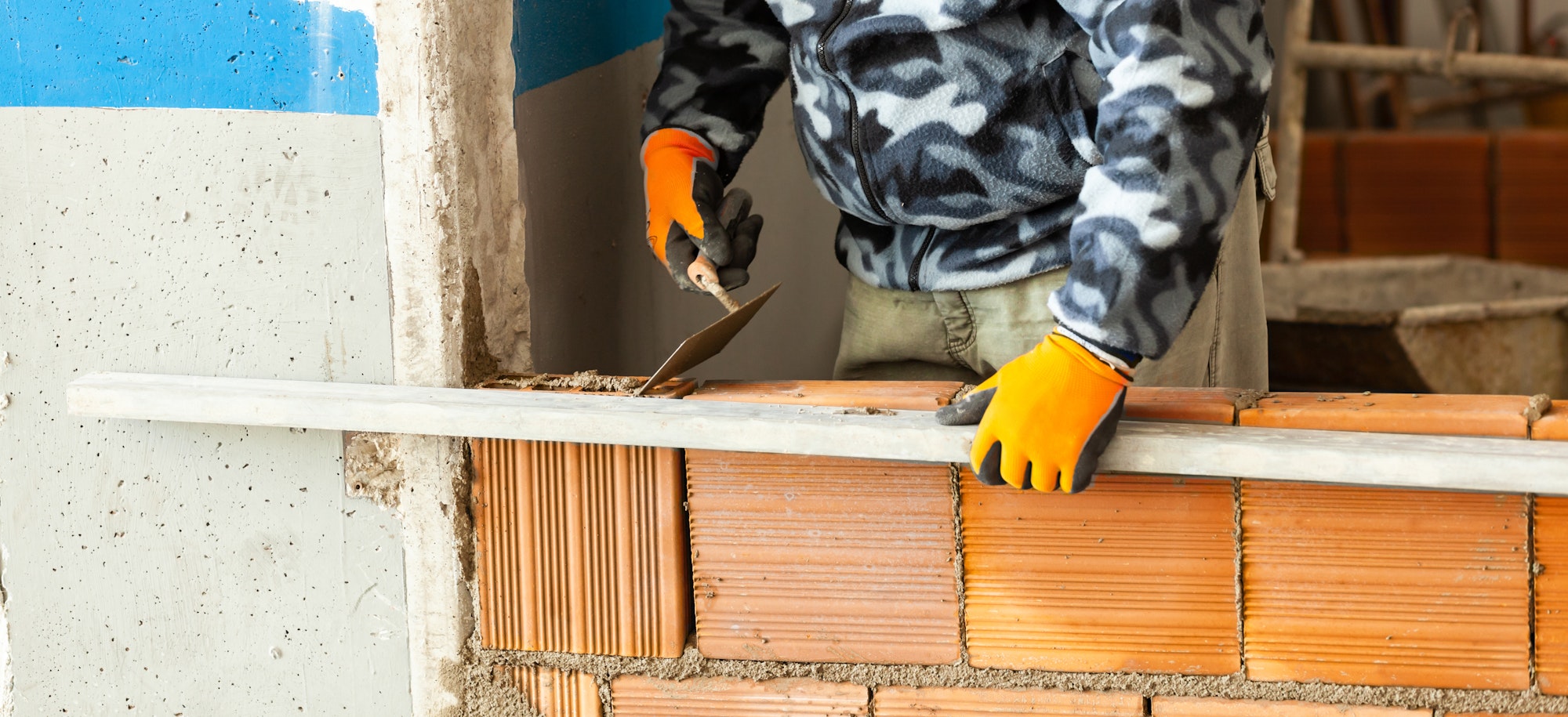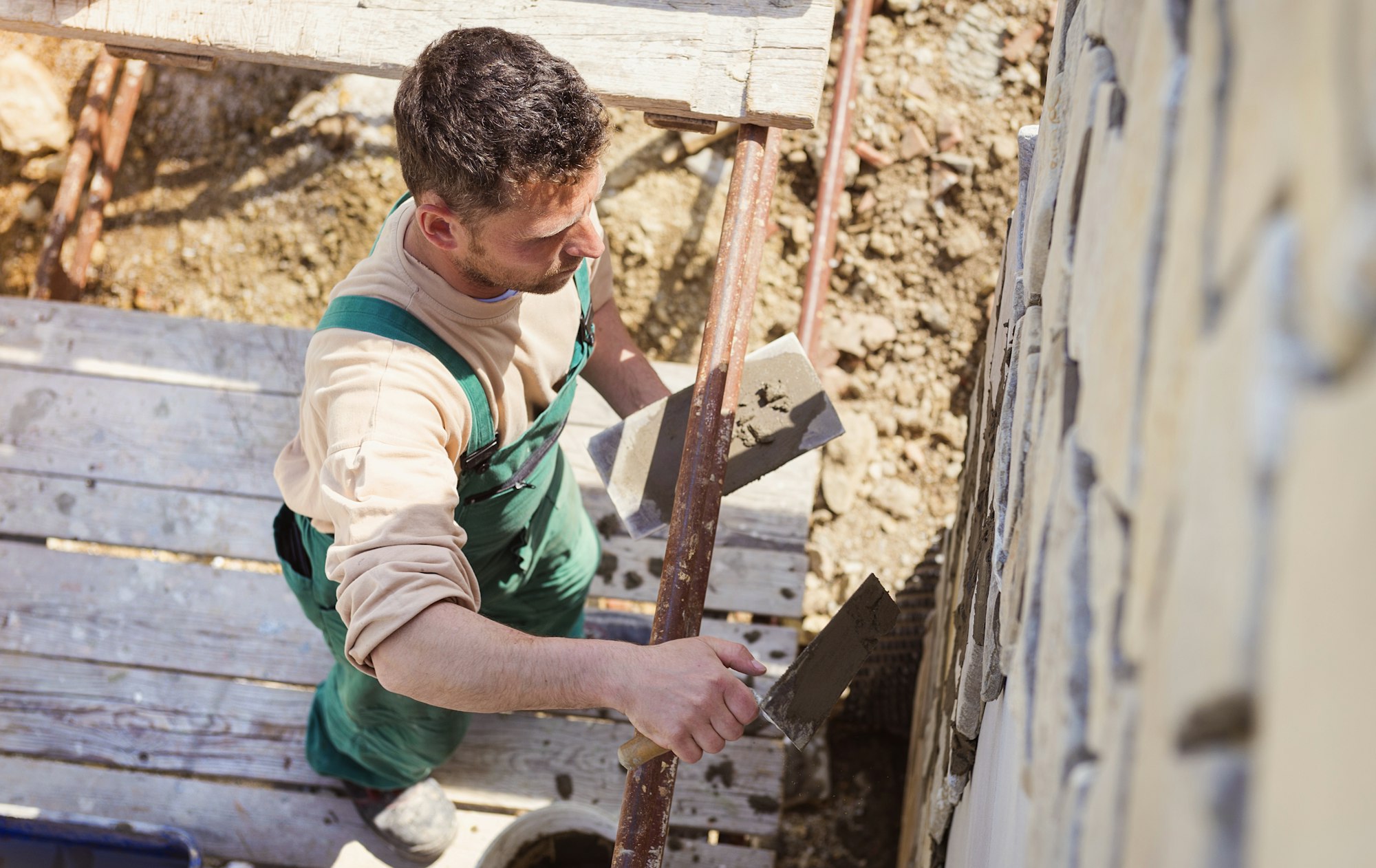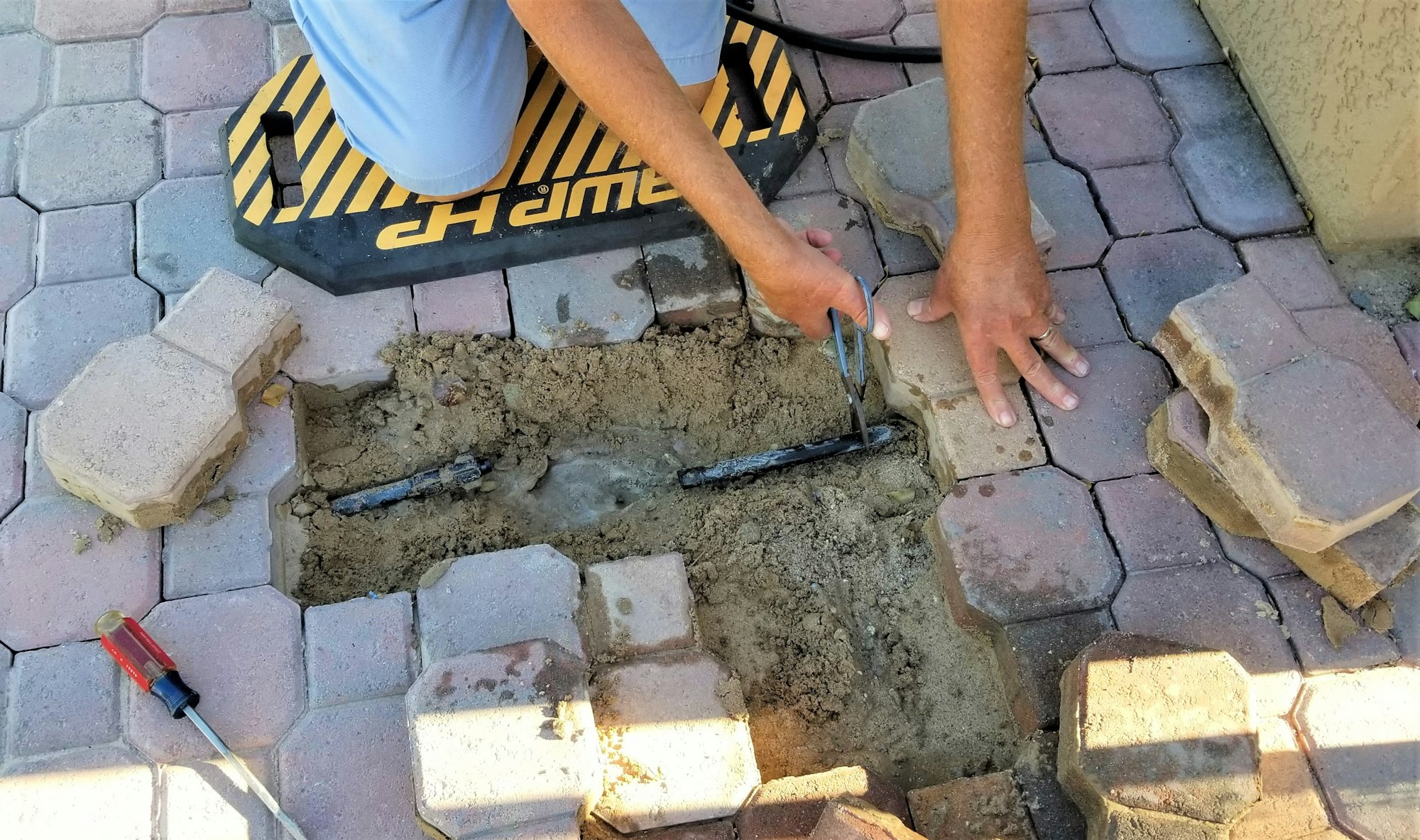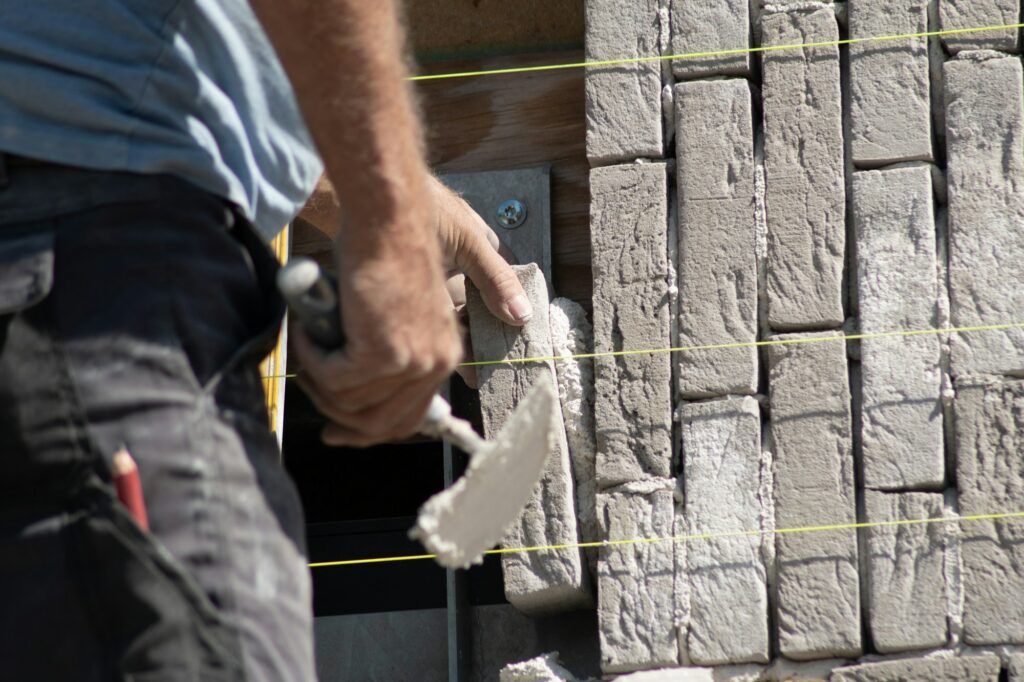Welcome to our comprehensive masonry guide, designed to help homeowners understand and choose the right stonework solutions. Whether you’re learning about basic concepts and techniques or exploring various types of stone and masonry methods, our goal is to provide valuable insights for informed decision-making in home improvement projects involving this timeless craft.
Understanding Masonry: Basic Concepts and Techniques
At its core, masonry is about building with stone, brick, or concrete blocks, held together by mortar. Known for its strength and beauty, masonry covers everything from basic walls to intricate structures. Homeowners can learn more by looking into natural stones like limestone, granite, sandstone, bricks, and concrete blocks, taking into account factors like climate and personal taste.

Key Skillsets in Masonry
Becoming proficient in masonry requires both theoretical and hands-on skills. Theoretical understanding includes learning building codes, architectural design principles, and the characteristics of various masonry materials. Practical skills involve measuring, shaping materials, applying mortar, and ensuring structural stability. A proficient mason demonstrates problem-solving capabilities, blending traditional craftsmanship with contemporary engineering methods to deliver precise, top-notch work.
Civilization and Stonework: A Historical Perspective
Masonry isn’t just about technical know-how; it’s a craft steeped in history, seen from the Egyptian pyramids to European cobblestone streets. Across civilizations, masonry has built lasting structures. Today, modern masonry combines old methods with new ones, meeting safety, energy efficiency, and design norms. Homeowners can tap into this history, valuing the enduring legacy and strength of masonry.
Types of Masonry Used in Home Design
Stone Masonry: Timeless Elegance
Stone masonry introduces natural beauty and timeless elegance to homes. Using rocks like granite, slate, limestone, or marble, it can be categorized as rubble (for a rustic look) or ashlar (uniform and refined). Stone’s durability makes it ideal for structural and decorative purposes, inside and outside the home. Stone’s unique patterns ensure each project is bespoke, offering homeowners a distinctive feature.

Brick masonry, known for its classic appeal and historical significance, provides versatility in color, shape, and size. From traditional red to modern tones, bricks can be laid in various bond patterns for different visual effects. Brick offers strength and insulation, making it suitable for exterior walls, pathways, and facades. With minimal maintenance and longevity, brickwork is a cost-effective and sustainable choice.
Concrete Masonry: Modern and Versatile
Concrete masonry offers a modern and adaptable choice, featuring practical concrete blocks known for their strength and thermal properties. Advances in concrete technology introduce polished, split-faced, and architectural blocks that replicate the appearance of natural stone. These options enable sleek and inventive home designs, with concrete masonry providing benefits like fire resistance and soundproofing.
Masonry and Aesthetic Versatility
Creating Striking Feature Walls
Masonry has the power to turn dull walls into stunning focal points, bringing texture, color, and dimension to any area. Whether opting for natural stone to evoke a rustic or contemporary vibe or bricks for a warm or industrial feel, feature walls make a visual statement while serving practical purposes. Thoughtfully designed feature walls can absorb and release heat, aiding in energy efficiency, and providing ideal backgrounds for showcasing artwork or incorporating built-in shelving.
Enhancing Curb Appeal with Stonework
Carefully designed stonework on facades, entryways, or garden walls can greatly elevate a home’s curb appeal. Natural stone can establish majestic entryways, while brickwork offers a cozy and welcoming exterior. Subtle touches like stone veneer or decorative masonry around windows can add character to a home. The durability and minimal upkeep of masonry materials make them a smart choice for exterior enhancements.

Fireplace Makeovers: From Drab to Fab
Revamping fireplaces with masonry can turn them into fabulous centerpieces. Stone masonry brings rustic or contemporary allure, while brick or decorative concrete blocks offer traditional or modern aesthetics. Revamping a fireplace not only adds visual appeal and coziness but also boosts a home’s value. Thanks to a range of finishes, colors, and textures, homeowners can personalize their fireplaces to match their style and elevate the atmosphere of their living spaces.
Guidelines for Hiring a Mason
Questions to Ask a Prospective Mason
When hiring a mason, conducting a thorough interview is crucial. Inquire about their experience, expertise, licensing, and insurance. Request references and project photos to assess the quality of their work. Key inquiries involve the mason’s experience, comprehensive written estimates, projected timelines, and their approach to unforeseen challenges. Clear communication and professionalism should be evident in their responses.
Essential Traits to Look for in a Mason
In addition to technical expertise, important qualities in a mason encompass attention to detail, creativity, a solid work ethic, familiarity with building codes and safety protocols, and a dedication to ongoing learning. These attributes play a crucial role in project success, guaranteeing top-notch craftsmanship and compliance with regulations.

Understanding the Cost Factors
To grasp the cost of masonry work, factor in material varieties, project intricacy, labor expenses, and location specifics. Request comprehensive written estimates delineating all expenses and compare quotes from various masons. Quality should take precedence over price, ensuring both materials and craftsmanship endure over time.
Maintenance Tips for Stonework
To maintain stonework’s durability, conduct routine inspections for signs of cracking, chipping, or mortar wear. Swiftly addressing these issues prevents costly repairs. Regular cleaning with a gentle detergent and soft brush eliminates accumulated dirt and grime. Combat moss or algae growth and tackle efflorescence using specialized cleaners to preserve stonework’s longevity.
Weatherproofing Your Stonework
To shield stonework from weather elements, apply breathable sealants to repel moisture and prevent penetration. Ensure proper drainage and clear debris from gutters and downspouts to avoid water damage. Landscaping features can provide additional protection from harsh weather, promoting stonework’s longevity and reducing maintenance needs.
Long-Term Care for Maximum Lifespan
Regular care entails biennial inspections to assess mortar joint conditions and avoid abrasive cleaning methods. Repointing should be entrusted to a professional mason. Consistent upkeep identifies minor issues early, preserving the stonework’s strength and beauty over time.
Environmentally Sustainable Masonry
The Green Building Movement and Masonry
Masonry supports the green building movement by offering durable materials that minimize the necessity for frequent renovations and reduce material waste. The thermal mass of stone, brick, and concrete helps control indoor temperatures, thereby reducing energy consumption. Local sourcing, recyclability, and repurposing opportunities make masonry a sustainable choice in construction.
Choosing Eco-Friendly Materials
Eco-friendly masonry materials include reclaimed or recycled bricks and stones, reducing the demand for new resources. Some bricks and blocks are made with less energy or incorporate recycled glass. Products with sustainability certifications contribute to eco-friendly construction practices and healthy indoor environments.
Sustainable Stonework: Future Trends and Innovations
The future of sustainable stonework is poised to embrace trends such as energy-efficient production methods, low-carbon cement, and modular masonry units crafted for disassembly and reuse. Research into biomimicry explores self-repairing or adaptive stonework. Masonry continues evolving, meeting sustainable architecture’s structural, aesthetic, and environmental needs.
Conclusion
In summary, mastering masonry presents homeowners with a durable and flexible option to elevate the beauty and worth of their homes. Whether opting for stone, brick, or concrete block, each material offers distinct benefits suited to a home’s style and requirements. Seeking advice from a professional mason like Cutter Construction guarantees the ideal masonry solutions for a home, blending aesthetic charm with durability and eco-friendliness.
Master the art of masonry with our homeowner’s guide to elegant stonework solutions. Elevate your home’s aesthetic with timeless craftsmanship. Contact us today!










